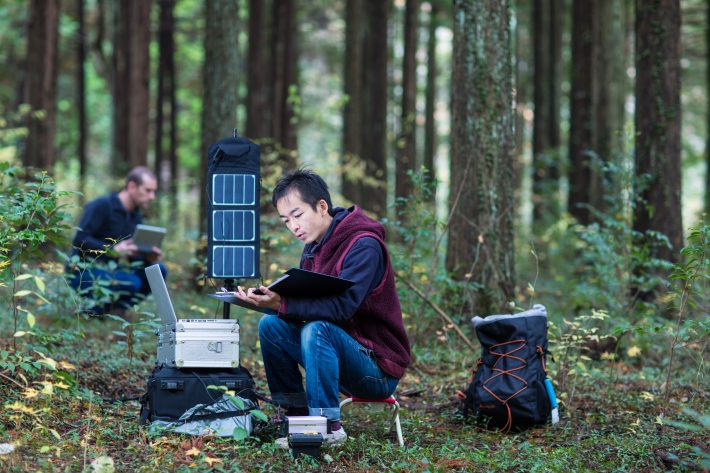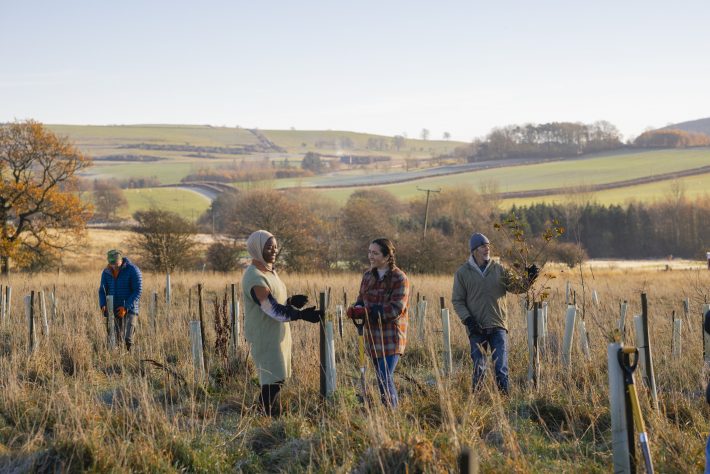British Ecological Society calls for greater funding for ecological research and sets out research agenda
Two landmark reports published today (23 March) by the British Ecological Society reveal that ecological sciences are losing out on funding compared to other sciences. The reports also set out a research agenda for ecology over the next 25 years.

With the twin crises of climate change and biodiversity loss, an ecological understanding of the world has never been more pivotal to the future of humanity and all life on Earth.
To further this ecological understanding and highlight the importance of ecology to our future, the British Ecological Society (BES) has published two landmark reports.
The Trends in UK Funding for Ecology report analysed changes in the amount of United Kingdom Research and Innovation (UKRI) funding available for ecological research in the UK. It found that although funding for ecological research increased 1.5 times between 2006 and 2021, funding for other research areas increased 2.8 times. This means that the proportion of UKRI funding given to ecology decreased over this period, a worrying trend at a time when ecological research has never been so vital.
“Our life support systems rely on flourishing species and habitats.
Further analysis of overall funding for ecology in the UK revealed that it receives only a small proportion of funding from other public and private sources and that this small proportion is either holding steady or declining.
These combined trends for ecological research paint a troubling picture. The BES urge UKRI and other public organisations to increase the amount of funding they provide to ecology to give people and nature the ability to fight back against the threats of climate change and biodiversity loss.
Professor Yadvinder Malhi, BES President and Professor of Ecosystem Science at the Environmental Change Institute, University of Oxford said:
“There has never been more awareness of the declining state of nature in the UK, and of the dual challenges that further decline and climate change would bring, yet there is also unprecedented will to do something better, to restore the natural world, to reconnect people to nature and to build ecological vibrant and climate-resilient landscapes and townscapes. An ecological understanding of our predicament and how to get out of it effectively has never been more important or valuable.”

Professor Rosie Hails, Nature and Science Director at the National Trust, and key contributor to the reports said:
“This is the critical decade, what we achieve over the next few years will have a lasting impact for many generations to come. We need to make significant changes to our impact upon the environment to create a nature positive future. Ecological research will further our understanding of the natural world, and enable us to manage our land, freshwaters, and seas to deliver all the benefits we need for a sustainable future. Our life support systems rely on flourishing species and habitats.”
Sir Robert Watson, Director of Strategic Development for the Tyndall Centre for Climate Change Research at the University of East Anglia, who was not involved in the reports, said:
“Given the importance of understanding how human activities are affecting our natural world, and consequently human well-being, ecological research is significantly underfunded compared to other areas of research. This needs to be remedied immediately if the UK is to meet its domestic and internationally agreed commitments to conserve and restore biodiversity.”
To tackle the global challenges the natural world faces, our Future of Ecological Research in the UK report has brought together leading experts to set out a vision for the future of ecological research.
The report identifies priority themes to advance our understanding of the natural world. These include, making sure ecological systems are resilient to a rapidly changing world; harnessing nature restoration projects into ‘living laboratories’ to provide new data and test approaches such as rewilding; and utilising artificial intelligence and new modelling approaches to better understand the enormous complexities of ecosystems.
We need to start looking at ecology at the largest scales to understand how ecological and human systems interweave, while also focussing our attentions on poorly understood ecological frontiers such as soils, forest canopies and the deep ocean.

Professor Bridget Emmett, BES President-Elect and Head of Soils and Land Use at the UK Centre for Ecology and Hydrology, and key contributor to the reports said:
“We need to accelerate the pace of developing new solutions to tackle biodiversity loss and climate change whilst supporting the well-being of our growing global population. This requires us to identify the problems and bottlenecks sooner and work through possible solutions in real-life situations, working with all sectors of society from local communities to land managers, business and governments.
“These spaces are called ‘living laboratories’ with the label emphasising that whilst they are places to rapidly test new ideas this is to be achieved working in partnership with people who are already committed to tackling these complex and challenging problems on the ground.”
Professor Sarah Main, Executive Director, Campaign for Science and Engineering (CaSE), who was not involved in the reports, said:
“It is important to recognise the critical role R&D can play in helping us tackle some of the biggest problems facing society. Whether it be combatting climate change, or preserving the biodiversity of our environment, it is essential to put science and engineering at the heart of the UK’s future.
“These reports highlight the vitally important way ecology research and innovation can contribute to improving lives and livelihoods. The reports also demonstrate the need to pay attention to the breadth of the research landscape so that no one is left behind on the journey to becoming a science-positive, innovation-positive country.”
The BES hopes that these reports on the changes to ecological research funding and exciting future research directions demonstrate to funding bodies the perilous trajectory ecological research is on. Now more than ever, ecologists must be given the funding and tools needed to help secure a future for us and all life on earth.
Like what we stand for?
Support our mission and help develop the next generation of ecologists by donating to the British Ecological Society.